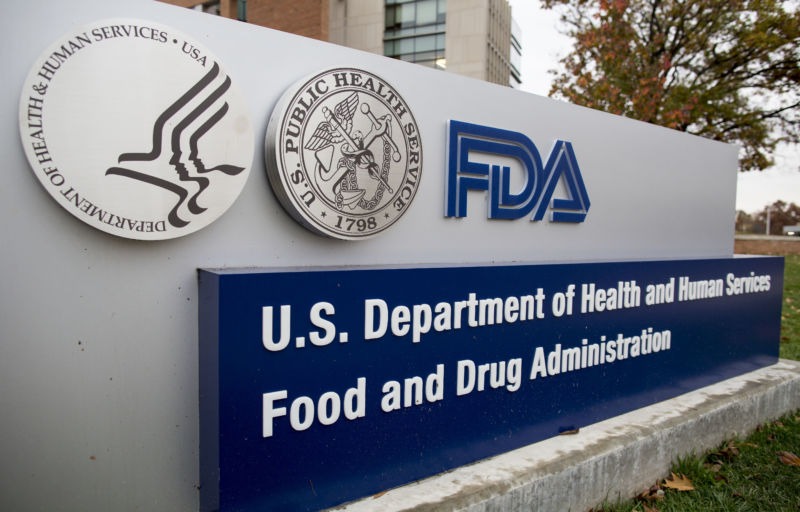BY DR LLOYD COVENS
May 31 Brings Step1 In Long FDA CBD Data-Gathering Exercise
For all the anticipation over the May 31, full day FDA hearing on CBD, it is really just step one in a political dance which may help CBD clarity– or just further muddy the works. When 120-plus professionals spoke to the 12 FDA bureaucrats in the Silver Springs, MD hearing room, the common FDA response was “please send us more data to back up what you just said.”
Those further enhanced comments (and all other written responses) are due by July 2nd, but with such an immersive collection of data and opinion, it seems that new FDA action could extend into early 2020. So, for many, the future of the North American CBD scene may remain a state-by-state solution.
Now in Connecticut and California (joining already-passed Colorado and New Mexico) it will be TOTALLY LEGAL to combine CBD with any food, beverage or animal supplement, assuming pending bills head to supportive governors.
Here are some highlights from the 8-hours of testimony:
- The majority of witnesses believe the FDA has existing rulemaking tools and should expedite designating CBD as a “dietary supplement”. Some want expedited FDA action, or temporary emergency rules, citing the consumer “explosion” of interest.
- Everyone wants upgraded “truth-in-labeling” protocols, especially in support of dosing information. Some would also like a national testing regime for safety (and efficacy) helping to push out CBD “online fakers” and quick buck “CBD private labelers.”
- The extensive United Nations’ WHO (World Health Organization) review of CBD verified the substance as safe and non-addictive was cited by 20-plus of the 130 witnesses, including Dr. Philip Blair of Elixinol. Blair confirmed his own years of careful patient feedback and concluded few side effects were observed.
- Adverse effects cited: fatigue or sleepiness — some headaches- stomach issues(constipation/diarrhea) — GW Pharma cites some adult liver toxicity, apparent around averaging 70MG a day.
- A 2019 survey by Consumer Reports says about 25% of all US adults (64Million) have tried CBD, but that about 7% of that number, or about 4.5Mil are current regular users.
- Disagreement that CBD is a medicine: Drug ingredient giant Noramco (white label supplier to big pharma) thinks CBD is an ingredient, not a free-standing medicine on its own. – Several speakers stated bluntly, Epidiolex is not the same as CBD, and should not be placed in the same analysis category by the FDA.
- On the FDA “path forward,” many said a 2 to 5-year clinical trial review is not practical. Several called for expedited approval for New Drug Ingredient or self-designated GRAS (Generally Recognized As Safe) which would allow quicker research into safety and efficacy.
- MJNA’s Dr. Stuart Titus suggested that more than 2500 studies have already been undertaken on medical cannabis or CBD, with more than 10,000 studies conducted on cannabis and terpenes in general.
- Several spoke to allowing over-the-counter CBD at a lower dose (ie., red yeast rice, fish oil, Aleve) and higher dosing available only through a prescription. FDA panelists express concern for too much CBD coming from a potential of consumer different forms (ie., a gummy, oil, topical) on the same day.
Summing Up
With passage of the 2018 Farm Bill, one might ask, ‘Why is the FDA involved at all in this CBD now-legal world?’ Hemp political expert and Washington veteran Ben Droz offers the best answer in a comment written this week:
“The FDA is in charge of keeping the public safe, not to restrict natural plant extracts. All CBD products should meet a baseline of requirements to be in the market, such as C-GMP manufacturing standards, and trackability of supply chain. Anything more than that should only apply to pharmaceutical grade dosage [like GW’s Epidiolex], which could be in the hundreds and hundreds of milligrams per day.”
Importantly– and possibly to reflect the idea that the FDA knows that hemp derived CBD is in fact legal– the FDA is not actually holding the meetings and comment period on hemp CBD alone. Instead, the hearing was officially on “products containing cannabis or cannabis derived compounds.”
By using the word “cannabis” rather than the 2019 definition of “hemp”, the FDA is taking comment on all cannabis products. This would show that any testimony or criticism against CBD, would be relating to any “cannabis derived CBD”, not necessarily including legal, hemp derived CBD.”
 –Based in Denver, Dr. Lloyd Covens, DBA is a seasoned cannabis industry journalist and the publisher of West420 NewsWeekly. Writing his doctorate on diffusion of innovations, Covens has been an expert journalist/researcher for 20 years chronicling new technology, global television and renewable energy advancements. He has reported on developments in the cannabis and hemp industry with weekly reports since 2014 covering the western U.S. for legal medical cannabis, recreational sales and hemp production. Covens is also the creator of the annual CO Hemp CBD conference held in Pueblo, Colorado.
–Based in Denver, Dr. Lloyd Covens, DBA is a seasoned cannabis industry journalist and the publisher of West420 NewsWeekly. Writing his doctorate on diffusion of innovations, Covens has been an expert journalist/researcher for 20 years chronicling new technology, global television and renewable energy advancements. He has reported on developments in the cannabis and hemp industry with weekly reports since 2014 covering the western U.S. for legal medical cannabis, recreational sales and hemp production. Covens is also the creator of the annual CO Hemp CBD conference held in Pueblo, Colorado.


